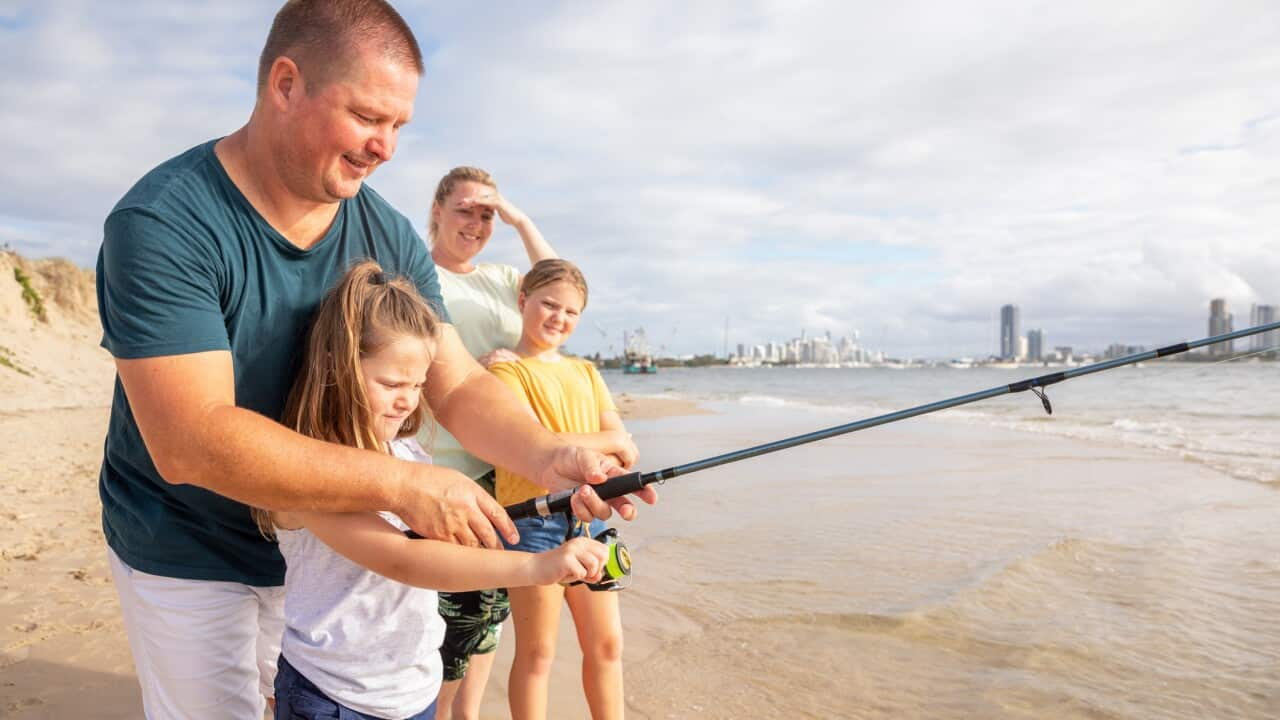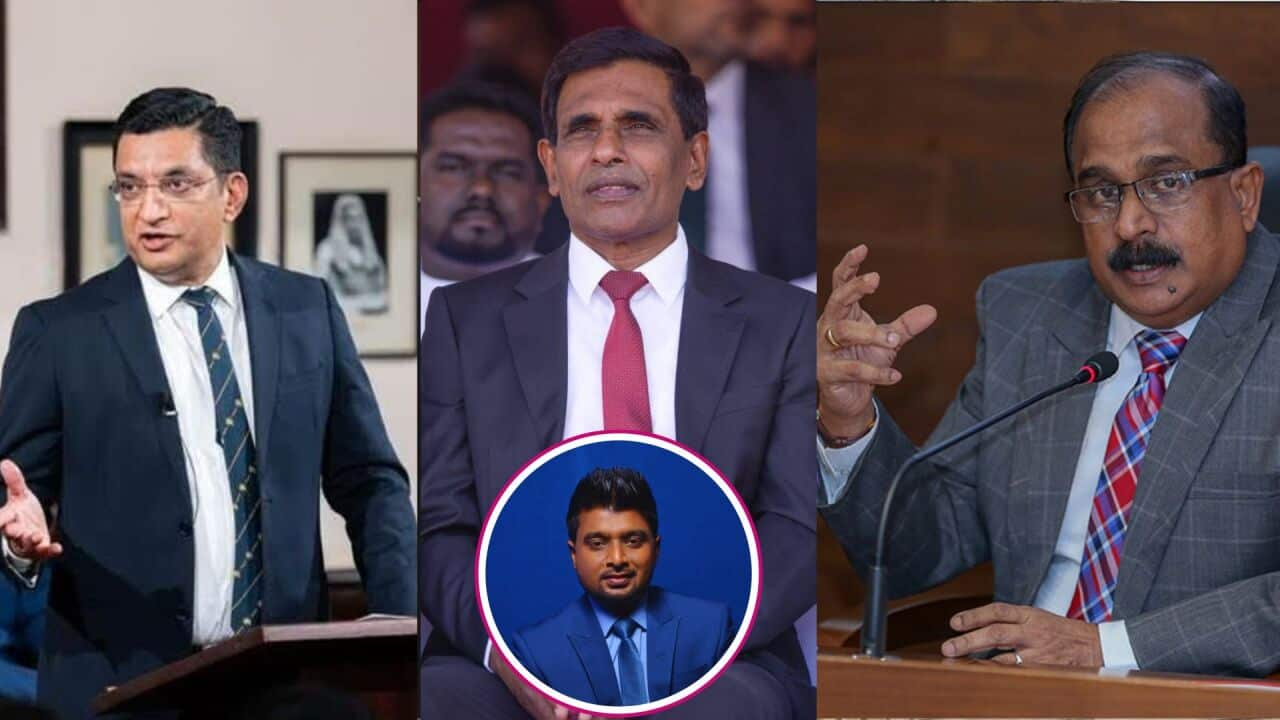spk_0
SBS acknowledges the Traditional Custodians of Country and their connections and continuous care for the skies, lands and waterways across Australia.
spk_1
You're listening to Australia Explained, an SBS audio podcast helping you navigate life in Australia.
spk_2
Did you know that 1 in 5 Australian adults goes fishing every year?
spk_2
Whether it's casting a line by the river, the beach, or from a boat, fishing is more than just a pastime, it's part of the culture.
spk_2
But here's what many newcomers don't realise. Fishing in Australia comes with rules, and they matter.
spk_3
There are different rules around salt and fresh water. Every state has got different species. They've also got different threatened species. Every state has got different rules around the tackle you can use, the number of rods you can have out, the number of hooks.
spk_2
Welcome to Australia Explained. I'm your host Melissa Compagnoni.
spk_2
And in this episode, we'll go through the state-based laws and restrictions that control when we need a fishing license, where and when we can fish, fish size limits, and endangered species. We'll also look at safety, rubbish disposal, and how to handle fish once you catch them.
spk_2
In a world where we spend so much time in front of screens, it's refreshing and maybe a little surprising that fishing has kept its appeal, even growing stronger over the past 20 years. A large scale study published in 2023 by the Australian government found that about 4.2 million adults go fishing every year.
spk_2
Fisheries scientist Andy Moore led the most recent national survey of recreational fishers. He explains that while the numbers haven't changed much in two decades, the story behind them has.
spk_4
A survey of that kind has only been done twice in Australia. What was interesting between 2001 and a more recent survey was that the relative percentage of people that go fishing, which is about 20%, 1 in 5 people, maintained the same.
spk_2
Mr Moore also points out that the faces of Australia's demographic are changing, with more culturally and linguistically diverse communities embracing the sport. We're seeing
spk_4
a really diverse group of Australians participate in recreational fishing. In some cases, a lot of that's traditional. They've got multiple generations of people doing that activity, and so when they come to Australia, they just continue to do that. We have a large economic exclusion zone where fishing can occur.
spk_4
the 3rd largest in the world, so we have lots of access. We have lots of coastline. We have lots of rivers and fishing seems to be a really popular activity and it seems to be part of Australian culture.
spk_2
Stan Konstantaras is the president of the Recreational Fishing Alliance of New South Wales, a peak body of member associations representing sport fishing, freshwater fishing, spear fishing, and anglers around the state.
spk_2
He says every jurisdiction has its own set of rules, from bag and size limits to the types of gear you can use. He explains just how much these differences can matter. Every
spk_3
state is different. There are different rules around salt and fresh water. Every state has got different species. They've also got different threatened species. Every state has also
spk_3
different rules around the tackle you can use, the number of rods you can have out, the number of hooks. Some states prohibit the use of certain baits.
spk_2
Fishing regulations are easy to find online, and in most states you can even access translated official apps. But if you're just starting out, a visit to your local fishing gear shop could be the best first step.
spk_2
Mr Konstantaris explains why local tackle shops are more than just stores. They're community hubs for advice and safety.
spk_3
Whether you come from a non-English speaking background, you're a customer to them, and they are always engaging, and the people at the local tackle shops are really good source of information. They're patient. They're mostly fishermen as well, so yeah, we have got diverse rules around Australia. Definitely make the effort to go and find out.
spk_2
What about licenses? In some states like South Australia, Queensland and the Northern Territory, you don't need one at all. In others, they're affordable and easy to get. Just remember, only buy from official government websites.
spk_2
Travis Dowling, CEO of the Victorian Fisheries Authority, warns about third party scams that overcharge.
spk_5
It's really easy to get a fishing license in Victoria. It's about $36 for the year, but I have to give a warning. There are a number of sites that you get onto when you Google a fisheries license, so they're third parties charging $90
spk_5
to $100 and a lot of these are overseas companies and you will get a fishing license but you'll pay three times what you should pay. It's a bit of a scam and they make the sites look very much like it's a legitimate government site. So use your mobile phone, jump onto the fisheries authority and it'll be really easy to do.
spk_2
Most people who break the rules don't do so deliberately. It's often accidental.
spk_2
And that's why it's important to double check your equipment and understand what's allowed, Mr Dowling says. For example, it's important to make sure your fishing equipment complies with local regulations.
spk_5
So over 90% of our inspections, people are doing the right thing, and if they're not doing the right thing, it's by accident. Look, we've got some examples where people will see online a particular type of net, right?
spk_5
And the fact that you're able to buy that net online, they may believe that that means it's legal to use in Victoria when in fact you can buy a lot of things online that are not legal to use in Victoria.
spk_2
But fishing isn't without risk. Rock fishing has been one of Australia's deadliest pastimes, with more than 240 drowning deaths recorded over the past two decades, many involving people from migrant backgrounds.
spk_2
For the past 20 years, the Recreational Fishing Alliance of New South Wales has been running campaigns on rock fishing safety.
spk_2
Mr Konstantaras shares why migrant communities are particularly vulnerable.
spk_3
I come from a migrant background, being Greek, so I know all the challenges of getting information to the migrant community. We have got really productive rock platforms in New South Wales that give a chance for families to put fresh fish on the table, but the pitfalls are huge. Someone who's relatively new to the sport walk down to the rocks and start fishing completely oblivious to the dangers.
spk_2
Wearing a life jacket is vital and life saving, but Mr Konstantaras warns if the waves look dangerous, it's best not to take the risk at all.
spk_3
Like if you really need to put a life jacket on because the seas are that big that you might get washed in, like you shouldn't be fishing there. It's a message we've been pushing for a very long time. If it's too rough, go home. Simple as that.
spk_2
Before we wrap up, here are two golden rules every angler should remember, no matter where you fish in Australia: be responsible and be respectful.
spk_2
Mr Dowling explains how small actions like handling fish with care and leaving no rubbish behind help protect both the environment and future fishing trips.
spk_5
So there's some really good practices. Obviously some of those are to protect and look after the fish that you're releasing, make sure that you don't keep them out of the water for very long.
spk_5
Make sure your hands are wet when you're releasing them. Make sure you don't leave litter around. When you go fishing, you want to think, when I come back here the next time, the place looks beautiful, it looks undamaged, and it looks protected. So don't leave your bait bags around, don't leave broken fishing line around. Take those things with you and have that thinking about your family coming back there.
spk_2
Thanks for listening to this episode of Australia Explained, written and produced by Zoe Thomaidou and hosted and mixed by me, Melissa Compagnoni. Australia Explained managing editor is Roza Germian.
spk_1
This was an SBS Audio podcast. For more Australia Explained stories, visit SBS.com.au/Australiaexplained
spk_6
Subscribe or follow the Australia Explained podcast for more valuable information and tips about settling into your new life in Australia. Do you have any questions or topic ideas, send us an email to australiaexplained@sbs.com.au.





